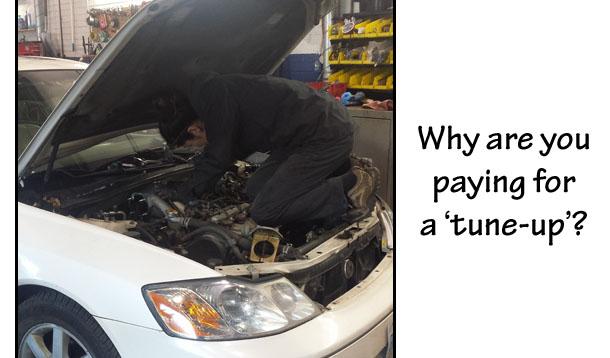
Quite often we get calls from clients asking for a tune-up on their car. What many of them think they're asking for is an overall maintenance check, making sure that their engine is running well, etc. What a tune-up means for technicians today is different than what it meant many years ago.
Back in the day, an engine would need to be 'tuned-up' on a regular basis — replacing spark plugs, adjusting ignition timing, and the like. In modern cars, most of these traditional timing and ignition components no longer exist. However, the old school meaning of the term 'tune-up' has carried on and many people still ask for it during regular service visits.
Since the 1990s, a tune-up service typically involves replacing spark plugs, air filter, PCV valve, and a throttle body and/or fuel injector service. If applicable, you may need to replace the spark plug wires as well as the fuel filter. When done according to the maintenance schedule, it's usually performed every 50,000kms to 100,000kms. So getting a tune-up for your car is not a frequent service, on average clients get that done every 2.5 years to 5 years.
The tune-up service keeps your ignition and fuel system in good shape as your car begins to age. Consequences of not doing the tune-up service include experiencing a rough idle, stalling and/or engine misfire. You might also experience poor fuel mileage. In some cases, if you wait too long the spark plug will be more difficult to remove from the engine and this could lead to extra costs. For example, some spark plugs on the market are now rated to perform to almost 200,000kms without needing to be changed. Sounds great, right?
Food for thought: although those plugs may technically last to the 200,000kms mark, there's a chance the plugs may not come out easily from the engine and cost you more in labour time. That's why many shops still recommend doing a tune-up when your car reaches 100,000kms.
Want to know more about car maintenance? Find out if Milky, Frothy Engine Oil Is A Bad Sign and The Only Secret To Maintaining Your Car!